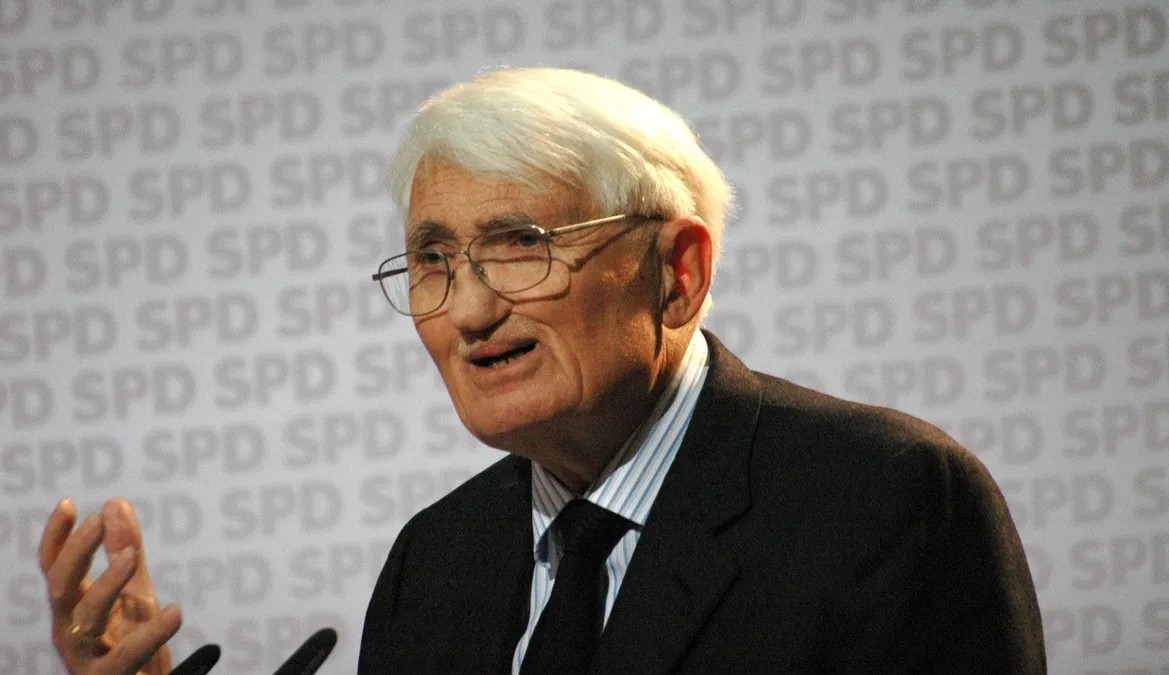The philosopher who surprised leftists with his support for Israel: Who is Jürgen Habermas?
The declaration of solidarity with Israel, signed by Jürgen Habermas, one of the important philosophers of the German Frankfurt school, became the target of criticism, as it was considered an effort to whitewash the war crimes that this country continues to commit in Gaza.

In the statement signed by Habermas, Nicole Deitelhoff, Rainer Forst, and Klaus Günther, they opposed the accusation of Israel of genocide.
The statement also reminded Germany's Nazi past and argued that Israel's actions could in no way justify antisemitic reactions.
The statement in question is as follows:
"The current situation created by the unparalleled brutality of Hamas and Israel's response to it has led to a flurry of moral and political statements and demonstrations. We believe that among all these conflicting views expressed there are some principles that should not be disputed. These are true with the Jews in Israel and Germany." It forms the basis of an understood solidarity.
Jürgen Habermas (born 18 June 1929) is a German philosopher and social theorist in the tradition of critical theory and pragmatism. His work addresses communicative rationality and the public sphere.
The massacre carried out by Hamas with the intention of destroying Jewish life in general prompted Israel to retaliate. How this fundamentally justified counterattack will be carried out is a controversial issue; The principles of proportionality, avoiding civilian casualties, and waging a war with the possibility of future peace should be the guiding principles.
Despite all the concerns about the fate of the Palestinian people, judicial standards are completely lost when genocidal intent is attributed to Israel's actions. Israel's actions in no way justify anti-Semitic reactions, especially in Germany. "It is unacceptable that Jews in Germany are once again subjected to threats to life and body and have to fear physical violence on the streets."
Who is Habermas?
He was born in 1929. He taught philosophy at Heidelberg University between 1961-1964, and philosophy and sociology at Frankfurt Johann Wolfgang Goethe University between 1964-1971.
He was the director of the Max Planck Institute between 1971 and 1983. He taught again in Frankfurt from 1983 until his retirement in 1994. With his works, he became influential as the most important thinker of the generation after Adorno, Horkheimer, and Marcuse, in the line of "Frankfurt School/Critical Theory".
He was deemed worthy of 25 important awards in Germany and internationally.
Born in Düsseldorf, Jürgen Habermas's family was a Protestant petty bourgeois family, unlike the other Jewish first-generation members of the Frankfurt School (Max Horkheimer, Herbert Marcuse, Erich Fromm, Otto Kirchheimer, Friedrich Pollock, Leo Lowenthal).
His father rose to become president of the Düsseldorf Chamber of Industry and Commerce. Her mother was an educated, intelligent, and sensitive woman who also worked as a nurse during the First World War and played the piano.
Habermas had two siblings, a brother, and a sister. Fathers and sons were influenced by Nazi culture and movement, depending on the spirit of the time. At the age of 10, Habermas joined the Nazi Youth Organization, partly out of necessity and partly out of his family's opportunism. His father and brother would be captured by the Americans in the final stages of the war, taken to America, and would only return to Germany in 1947. Considering the education system and the war environment of the period, it would be misleading to think that Habermas had a different socialization than his peers.
Habermas' main problem in his childhood and adolescence was the speech difficulty he had due to being born with a cleft palate and related health problems. In his later years, his speech would take on a form that required some effort to understand. From this situation, he and others will derive jokes related to his interest in the "theory of communicative action." The issue that someone with a speech disability will worry about will, of course, be communication, or because of the strangeness of communication.
The Frankfurt School was founded in 1923 as the Institute for Social Research at the University of Frankfurt. With Hitler coming to power, the Frankfurt School moved first to Geneva, then to the United States in 1935, and finally returned to Frankfurt in 1953. The aim of the school was to gather different fields that adopted the Marxist approach under the roof of an interdisciplinary institute.
Max Horkheimer, Theodor W Adorno, Walter Benjamin, Herbert Marcuse, Leo Löwenthal, Eric Fromm, and Jürgen Habermas are important representatives of this school of thought. Issues such as capitalism, consumer society, culture industry, enlightenment, and reason were the main issues critically addressed by thinkers from the Frankfurt School.
In 1949, he enrolled at Georgia-Augusta University in Göttingen. His main branch was philosophy, and his minor branches were history, economics, psychology, and literary studies.
He wrote his doctorate on Schelling at the age of 24 and 9 months (1954): The thesis titled "The Absolute and History: The Double Meaning in Schelling's Thought" deals with Schelling's historical situatedness of man and how the absolutization of this situatedness affects the relationship between man, God and nature. discusses the problems it causes and Schelling's responses to this problem.
In 1955, he married Ute Wesselhoeft, a historian with a long history and a wide cultural family background, whom he met in Bonn, and who would continue his life as an academic. His daughter Rebekka Habermas and his son Tilmann Habermas from this marriage still work as academics; One of his daughters works as a copyright officer in a publishing house.
Works:
Strukturwandel der Öffentlichkeit (1962);
Technik und Wissenschaft als Ideologie (1968),
Zur Logik der Wissenschaften (1970);
Zukunft der menschlichen Natur (2001);
Erläuterungen zur Diskursethik (1993);
Der gespaltene Westen (2004).
